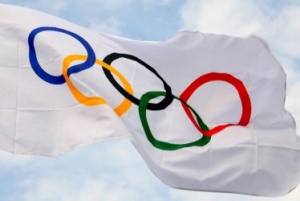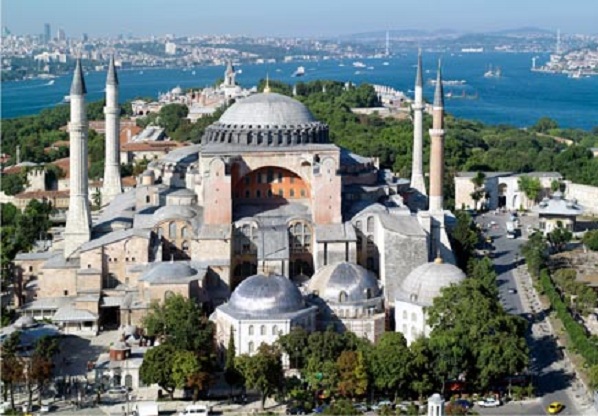Tourism bidding wars ahead of 2020 Olympic Games

Istanbul, Tokyo and Madrid have made it on to the short list of cities bidding to host the 2020 Olympic Games.
The news, announced by The International Olympic Committee (IOC) last night, will see the three remaining candidate cities enter Phase 2 of the selection period.
“The executive board has decided that the following cities can continue to the next phase and become candidates for 2020. In the order of drawing lots: Istanbul, Tokyo, and Madrid,” explains IOC spokesman Mark Adams.
The countries will submit their Candidature File with an in-depth description of their Olympic project to the IOC by January 7, 2013.
Criteria includes the potential of applicant cities, including their countries – to host, organise and stage successful Olympic Games in 2020.
ADVERTISEMENT
Following an official visit by the IOC Evaluation Commission between February and April of 2013, a report will be submitted to the 2020 IOC Evaluation Commission and candidate cities will brief IOC members.
The final decision on the winning bid will be made on September 7, 2013, at the 125th IOC Session in Buenos Aires.
Staging major sporting events has major benefits for brands and destinations including exposure and investment opportunities.
Sport tourism is travel industry’s fastest growing sector, and contribute an astonishing 14 percent of overall travel and tourism receipts, according to World Sport Destination Expo. This look set to rise for the next decade thanks to the ever increasing numbers of world-class sporting entertainment.
This year’s sporting calendar has been rammed with major events from Euro 2012 in Munich to the Olympics 2012 in London and Ryder Cup in Illinois, to name but a few.

As London gears up to host the Olympics 2012, Breaking Travel News takes a closer look at the 2020 applicant cities and what they have to offer for this major sporting event.
Tokyo demonstrating resilience
Since last year’s devastating earthquake and tsunami, Japan has shown incredible resilience, hosting a number of major international events and showing the world that the country is open for business.
Hosting the games in Tokyo would be symbolise unity for the country while demonstrating the power of sport to inspire and motivate people during difficult times.
On hearing that Tokyo made the grade at this stage of the bidding, Prime Minister Yoshihiko Noda said hosting the games would “serve as a symbol of Japan’s recovery from last year’s Great East Japan Earthquake.”

The IOC praised Tokyo in its assessment, claiming the city “presents a very strong application and offers athletes the conditions to be able to compete at their best.”
Tokyo has allocated S$6.4 billion in funding for the Summer Games and plans to build 20 new venues for the Olympics. Japan. It would place 28 out of the 31 competition sites within 8 kilometers of the Olympic Village for ease of access.
If Tokyo beats off rivals Madrid and Istanbul to host the games, it will be the second time for Japan to host the Summer Games, following the 1964 Tokyo Olympics. Its vision to host 2020 was in fact inspired by the impact that the 1964 games had on Tokyo and Japan in terms of economic development, social reconstruction and a positive attitude. The Tokyo-Osaka bullet train was built for the opening.
Turkey: The European Sports Capital for 2012
It seems fitting that Istanbul has been shortlisted as a candidate city for the 2020 Olympics having been selected as the European Capital of Sport for 2012.
Minister Kılıç recently commented: “Being a European Sports Capital involves the concept of being a city where every individual is interested in sports. If we can grasp this emphasis well and do exactly what it necessitates, İstanbul will become one of the healthiest cities in the world.”
On the back of hosting the World Athletics Championship, Istanbul 2020’s vision is to celebrate the Olympic Games and the Olympic values in an ancient, culturally and racially diverse city that bridges Europe and Asia and to showcase the Games in one city on two continents.

With a rapidly growing population, of which almost half is under the age of 25, Istanbul aspires to put sport at the centre of its young people’s future and to reinforce the position of Turkey on the global stage.
Hosting the Games described as a “national priority” for the Istanbul, which is placing its fifth bid to host the Olympic Games.
The city is undergoing massive infrastructure development to meet the needs of its growing population and it claims Games planning is “fully aligned with the city’s long-term development strategies”.
Legacies will include improved transport mobility, housing in a city growth area, new accessibility standards and improved education.
Istanbul has proposed Four Games zones are proposed: the Olympic City Zone (to include the Olympic Park, the Olympic Village and10 competition venues), the Coastal Zone, the Bosphorus Zone (with venues in Asia and Europe) and the Forest Zone.
Istanbul has selected venue sites based on the city’s transport master plan and existing venues as well as in keeping with the city’s urban development. 26 out of 36 competition venues would be located within 30 minutes of the Olympic Village.
With over 46,000 3-5 star hotel rooms in Istanbul, accommodation is well catered for, although it is noted that the number of 3-star hotel rooms appears to be on the low side. 34,000 existing and planned 3-5 star hotel rooms will be within 10 km of the Games centre (Congress Valley/Bosphorus Zone). But the Games centre is 20-30 km from the Olympic Park.
Istanbul’s has proposed a USD 9.4 billion transport infrastructure development programme, of which USD 2.5 billion has already been completed. Key elements include Bosphorus crossings and a new Eurasia Bosphorus road tunnel to connect major urban arterials on both sides of the Bosphorus.
Construction of the rail tunnel is well advanced and is planned to be completed by the end 2013, with the road tunnel due to be completed by 2016. In addition, eight 60 km metro line extensions are planned.
Madrid looks to the future
Madrid 2020’s vision is for the Olympic Games to contribute to the long-term social and economic development of the city, region and country.
Sport is part of a national strategy for social and cultural development and the Spanish Government views hosting the Games as an essential project to create opportunities for future generations.
This is the third consecutive Olympic bid for Madrid, which is building on work achieved during bids to host the 2012 and 2016 Olympic Games.
Madrid’s vision is to deliver successful Games on minimal investment and, building on the country’s passion for sport, to create an unforgettable experience for the athletes.
A Madrid Games aims to leave a sustainable environmental, social and economic legacy. A Legacy Commission has been created to set up a long-term development and implementation strategy in the five following areas: social impact, sport, environment, economy and culture-education. The primary objective is to create a legacy focusing on values and talent.
Through hosting the Olympic and Paralympic Games, Madrid 2020 seeks to offer a legacy of opportunity to a new generation of young people, to generate employment and to achieve further social integration for all through sport.
Madrid’s concept is based on maximising the use of existing venues with easy access via public transport, and only constructing new, permanent venues when a long-term sports legacy is guaranteed.

Madrid proposes a 17,800 bed village within the Olympic Park Cluster in the Campo de las Naciones Zone, on the eastern boundary of the Olympic region. All competition venues in Madrid are located within 20 km of the Olympic Village.
The 45,000 3-5 star hotel rooms in Madrid exceeds IOC requirements and there is a good variety of 3, 4 and 5 star hotel rooms.
A total of approximately 36,000 existing, planned and additional 3 to 5-star hotel rooms and a further 5,100 rooms in the media village will be within 10 km of the Games centre (Olympic Stadium), reflecting a compact accommodation plan.

